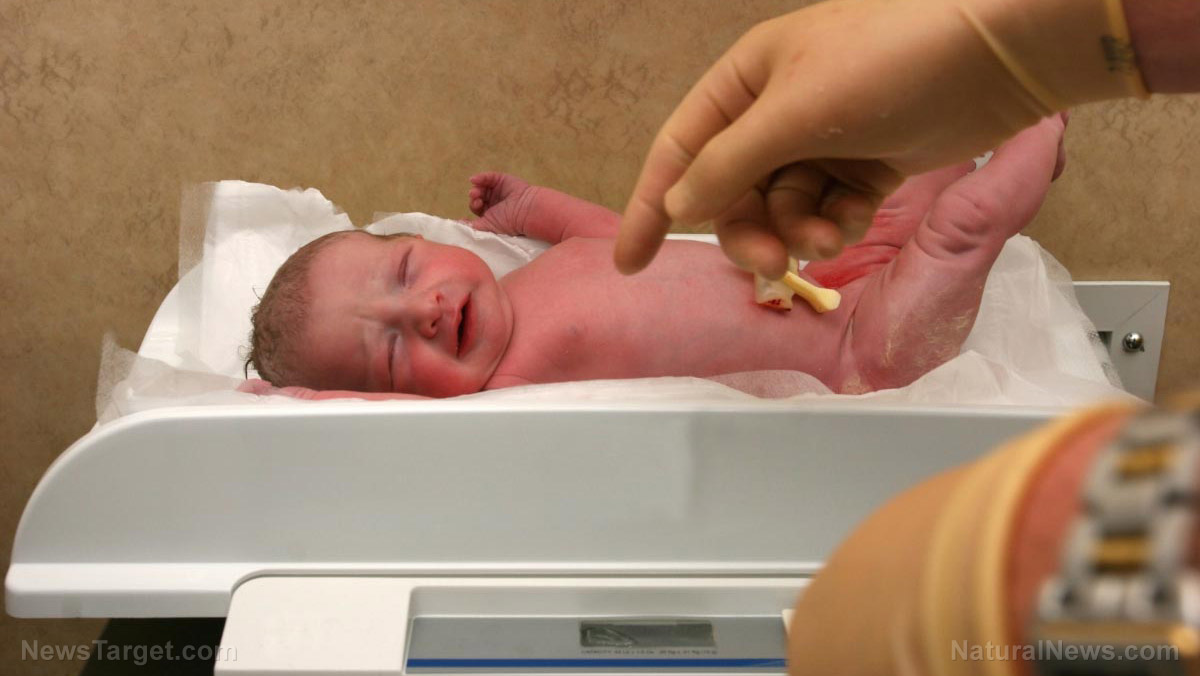Iron supplements found to improve neurological development and behavior issues in kids who were born small
10/09/2017 / By Rhonda Johansson

One of the risks of delivering a pre-term or low-weight baby is neurological impairment. Often, these two conditions go hand-in-hand with children born before the desired 40-week mark having a low birth weight. Doctors note that children who weigh less than 2,500 grams, or 5.5 lbs. have an increased likelihood of developing an iron deficiency as they mature. This condition is strongly linked to impaired cognitive function, the symptoms of which include antisocial behavioral problems at school age. Nonetheless, a new study from the Umeå University in Sweden has concluded that iron supplementation may significantly reduce this condition.
Led by Staffan Berglund, the team observed 285 late pre-term and full-term babies who were born with low weight. These babies were randomly selected to receive either an iron supplement from the age of six weeks to six months or no supplement at all. The team conducted a series of tests when the children were around three and a half years old. The researchers saw that children who were part of the supplement group displayed fewer behavioral problems than those who did not receive any iron.
This is still an ongoing study, as Berglund wanted to see how early iron supplementation could affect neurocognitive function even as the child develops. These children are now seven and the new study focuses on their behavioral patterns as they enter primary school.
The team saw that there were no major differences in the intelligence scores between the children in the two groups. Where there was a difference though, was how the children reacted to stressful situations. Children who were given extra iron when they were infants displayed lower levels of aggressiveness and rule-breaking behaviors. Moreover, these children did not suffer any thought problems, which are early indicators of autism spectrum disorders.

“Our findings suggest that iron supplementation may have long-lasting effects on behavioral functions in children born of a low birth weight,” explained Berglund on Science Daily. “This clinically important benefit from early iron supplementation gives further support to recommend iron supplementation of all low birth weight children, including those with marginally low birth-weight.”
Berglund has concluded that children born with a low weight represent a large proportion of all births. He says that nearly five percent of infants born in high-income countries, and around 15 percent in low-income countries have low birth weight.
An emphasis on pre-natal care
The World Health Organization (WHO) recognizes low birth weight as a high-risk, post-delivery condition. They released a global nutrition target to reduce the number of affected infants by 30 percent by 2025. This would lessen the current estimates of low birth weight babies from 20 million to 14 million.
For mothers, the most important preventive action is thorough prenatal care. Health experts note that women who do not regularly visit their obstetrician are more likely to deliver babies with low weight. Antenatal interventions would also include daily iron and folic acid supplementation, which would aid in fetal development. Pregnant women are also encouraged to stop smoking and to opt for a natural delivery. Non-medical indicated cesarean delivery and induction increases the risk of having a low birth weight baby.
On a pre-pregnancy level, adequate spacing between births can also limit the risk of a low birth weight child. Women should speak with their health practitioner about proper contraceptive methods that align with both her medical history and faith background, if necessary.
Women who are pregnant or trying to get pregnant can find similar stories to this one at Research.news.
Sources include:
Submit a correction >>
Tagged Under:
behavior problems, child health, fetal development, folic acid, iron during pregnancy, iron supplements, low birth weight, natural remedies, pregnancy, premature babies, prenatal care, preventative action, research, supplement, women health
This article may contain statements that reflect the opinion of the author





















